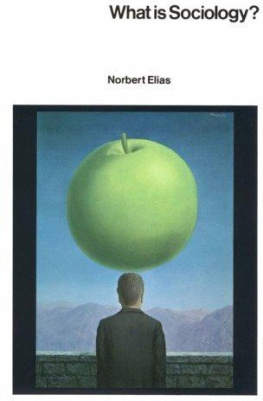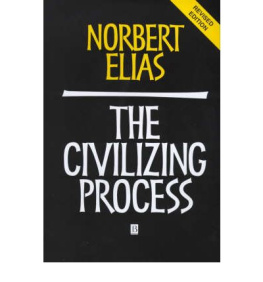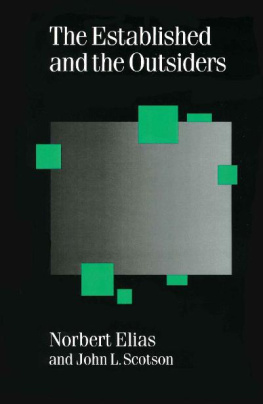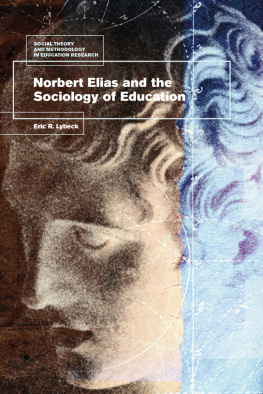If, in writing an introduction to sociology, one deviates somewhat from the familiar paths and in doing so endeavours to help the reader to think through anew the basic problems of society, in the first instance one can trust to nothing else but one's own conscience. Yet one is always dependent on other people for their help, encouragement, stimulus, and suggestions. Here I cannot name everyone who in one way or another has aided me in this work. But apart from the Editor of the series, Professor Dieter Claessens, to whom I dedicate this book, I must explicitly mention Dr W. Lepenies, who with great skill and tact adjusted the author's over-long, rather difficult and not easily shortened manuscript to the prescribed format for the series. Volker Krumrey gave me indispensable help and good advice on the preparation of the manuscript. I should also like to express my heartfelt thanks to my friends and colleagues Eric Dunning, Johan Goudsblom and Hermann Korte for the stimulus and advice they gave me. Finally, I must not omit to thank my publisher Dr M. Faltermaier, whose patience I from time to time sorely tried.
Translators' acknowledgements
The principal debt which Grace Morrissey and I owe as translators of What is Sociology? is to the author himself. One of the chief purposes of Professor Elias's book is to invite sociologists to restructure their imaginations, to re consider the way they think and speak about society. And so, in many instances, our knowledge of current sociological idiom proved something of a handicap - the problem was precisely to avoid the familiar terms and modes of expression. In this, the author's assistance has been more than valuable; it has been essential. As a sociologist rather than as trans' lator, I should like to acknowledge the stimulus I gained through my conversations with Professor Elias.
In revising the translation for publication I was immensely assisted by Professor Johan Goudsblom of the University of Amsterdam, who read the entire text and constructively criticized it line by line. Rod Aya, Donald Munro, Gillian Middleton-Smith, my wife Barbara and, indirectly, my fellow contributors to the Festschrift for Norbert Elias ( Human Figurations, edited by Gleichmann Goudsblom and Korte, Amsterdam 1977) also suggested many improvements. Beryl Harris, Elsa Broome and Sue Ridler typed the manuscript.
Lastly, let me thank Ann Douglas and her successor at Hutchinson, Robert Shreeve, who encouraged me to persist with this translation; their patience, like that of the original German publisher, was sorely tried.
Stephen Mennell Exeter, 1977
-9-
[This page intentionally left blank.] | -10- |
|
Foreword
Norbert Elias is one of the German scholars who fled Germany in the 1930s and eventually made his home in England. His most important scholarly contribution, ber den Prozess der Zivilisation, was published in 1939 in Switzerland, and a new edition with an important new introduction was published in 1969, also in Switzerland. It is only now, however, that Elias's major works, including the present volume, are becoming available to English readers. Nevertheless, Norbert Elias's work as a teacher at the University of Leicester had considerable influence. By now one can speak of a whole generation of English sociologists who have been students of Elias and carried away with them his infectious enthusiasm for the subject. Readers of this book will be able to recognize what has captured their imagination, the author's natural gift as a teacher. It is also possible to speak of a renewed interest in the work of Elias in Germany and Holland where, after his retirement from Leicester in 1962, he has been visiting professor at several universities. In effect, Norbert Elias's fate has been singular in that his major impact as a teacher has been in England, while the belated impact of his scholarly work has remained within the German academic world.








